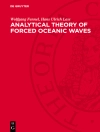This book addresses current activities in strong-motion networks around the globe, covering issues related to designing, maintaining and disseminating information from these arrays. The book is divided into three principal sections. The first section includes recent developments in regional and global ground-motion predictive models.
It presents discussions on the similarities and differences of ground motion estimations from these models and their application to design spectra as well as other novel procedures for predicting engineering parameters in seismic regions with sparse data. The second section introduces topics about the particular methodologies being implemented in the recently established global and regional strong-motion databanks in Europe to maintain and disseminate the archived accelerometric data. The final section describes major strong-motion arrays around the world and their historical developments. The last three chapters of this section introduce projects carried out within the context of arrays deployed for seismic risk studies in metropolitan areas.
Audience : This timely book will be of particular interest for researchers who use accelerometric data extensively to conduct studies in earthquake engineering and engineering seismology.
Inhaltsverzeichnis
Preface and Acknowledgements.- Contributors.- Part 1: Ground Motion Predictive Models.- Ground-Motion Prediction Equations (GMPEs) from a Global Dataset: The PEER NGA Equations; D.M. Boore.- Ground-Motion Models for Defining Seismic Actions in Eurocode 8; J.J. Bommer.- Investigating Possible Regional Dependence in Strong Ground Motions; J. Douglas.- A Predictive Ground-Motion Model for Turkey and its Comparison with Recent Local and Global GMPEs; Z. Çağnan, S. Akkar, P. Gülkan.- Strong-Motion Networks in Italy and Their Efficient Use in the Derivation of Regional and Global Predictive Models; L. Luzi et al.- Strong-Motion Networks in Greece and Their Efficient Use in the Derivation of Regional Ground-Motion Predictive Models; B. Margaris et al.- 7 Ground Motion Simulation Using the Hybrid Empirical Method: Issues and Insights; Kenneth W. Campbell.- Part 2: Accelerometric Data Repositories.- 8 Record Processing in ITACA, the New Italian Strong-Motion Database; R. Paolucci et al.- 9 The European-Mediterranean Distributed Accelerometric Data-Base; A. Roca et al.- 10 Distributed Archive and Single Access System for Accelerometric Event Data: A NERIES Initiative; C. Péquegnat et al.- Part 3: Arrays and Networks.- 11 EUROSEISTEST 3D Array for the Study of Complex Site Effects; K. Pitilakis et al.- 12 Development of New Strong-Motion Seismographs of K-NET and Ki K-net; S. Aoi et al.- 13 Integrating the European Observational Seismology Infrastructure: NERIES Developments; T. Van Eck et al.- 14 The Turkish National Accelerometric Network: 1973-2010; P. Gülkan.- 15 The Current State of Strong Motion Monitoring in Switzerland; J. Clinton et al.- 16 Real-time Seismic Monitoring of Structures: Data Handling and Case Studies; M. Çelebi.- 17 Strong-Motion Networks in Romania and Their Efficient Use in the Structural Engineering Applications; I. G. Craifaleanu, I. S. Borcia, and I. C. Praun.- 18 Strong-Motion and Structural Monitoring Networks in Istanbul and Their Use for Risk Assessment; E. Şafak- Addresses of Principal Contributors – Index.












